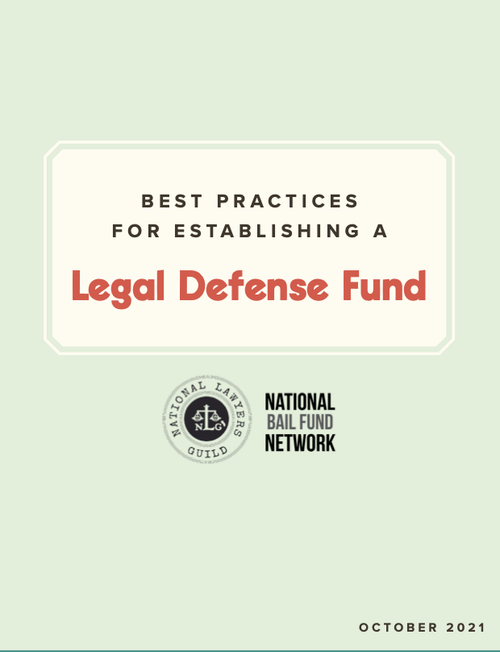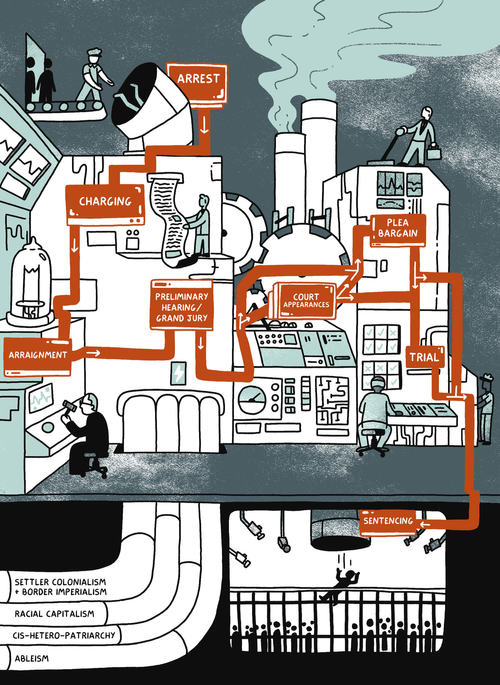Between the years 2021 and 2024, the Biden administration has rapidly created and expanded initiatives that massively expand surveillance and control of immigrant communities who are not detained in physical cages. The Alternatives to Detention Program, also known as ISAP, is a major arm of these initiatives, but not the only one. Hundreds of thousands of people are controlled by this program and the Biden administration threatens to control millions more through the creation of programs like the Release and Reporting Management Program. This zine was created by the people closest to the issue – directly impacted communities and grassroots community organizers. It adapts real life stories of struggle, isolation, politicization, and organizing efforts.
Read MoreCommunity Justice Exchange partnered with Defender Impact Initiative to produce this toolkit for folks working to end mass criminalization and incarceration, who have taken to social media to share the injustices they witness or experience in courtrooms, whether as public defenders, court watching groups, or individual advocates.
Read MoreThe Abolish Data Criminalization Curriculum Workbook is an educational tool for organizers committed to learning about and organizing against migrant surveillance and social control. The workbook contains five guided activities with accompanying resources. It operates as a facilitation guide that will engage participants in discussions, personal and collective reflections, study, and more.
Read MoreCommunity Justice Exchange partnered with Project NIA, Court Watch MA, Families for Justice as Healing, and Survived and Punished NY to produce a document that outlines abolitionist principles, as well as strategies and tactics, for organizing campaigns targeted at prosecutors.
Read MoreWe are at a crossroads where campaigns to end money bail and pretrial incarceration must also contend with the broad and insidious introduction of risk assessment tools (RATs) as one of the “replacement” interventions the system wants to claim as “reform.” We created this guide for organizers contending with this tension -- how to engage with risk assessment tools in their work to end pretrial incarceration and mass supervision.
Read MoreThere is no one “right” way to set up a legal defense fund or rapid response bail fund, and these definitions can be fluid depending on the needs of your local community. Historically, legal activists have employed a variety of approaches when creating and operating these funds, often specific to political circumstances and differences in local legal systems. This document, developed by the National Bail Fund Network and the National Lawyers Guild, provides an overview of some of the best practices distilled from decades of legal defense fund experiences.
Read MoreBeyond Criminal Courts: Defund and Divest is a digital resource hub for organizers, advocates and community members working together to build the organizing-power we need to defund, divest, and ultimately to dismantle criminal courts for good. It is a collaborative project created by Community Justice Exchange and Interrupting Criminalization, with incredible web design and development by Research Action Design, illustrations by Noah Jodice, and Spanish translation by tilde Language Justice Collaborative.
Read MoreThere is no one right way to start a bail fund. This document is intended for organizers, legal advocates, and organizations contemplating starting a bail fund as an intervention in the criminal legal and/or immigration detention systems
Read More
















